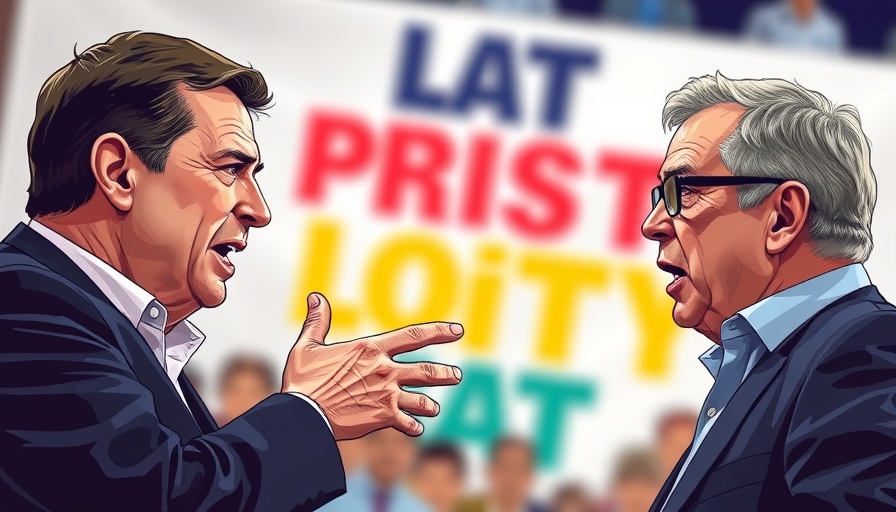
Trump’s Bold Move: Exposing the Truth Behind South Africa's Land Occupation
In a recent and highly contentious meeting, former President Donald Trump didn’t hold back as he confronted the South African President Cyril Ramaphosa over the alarming reality faced by white farmers in South Africa. Citing various reports and data, Trump illuminated the ongoing violence targeting this community, raising critical questions about race relations and justice within the nation.
In Trump's recent statement regarding South African Farmers, he boldly addressed crucial issues of discrimination and violence that merit our attention.
The Case for White Farmer Security
There’s a growing concern regarding the safety of white farmers in South Africa. Reports indicate that many have been murdered, and their land unjustly occupied. Trump highlighted these issues during their Oval Office meeting, arguing that these acts are nothing short of discrimination and could even qualify as genocide. His assertions ignited a fierce debate about how these realities are being addressed—or overlooked—both in South Africa and globally.
Unpacking the Claims
Critics quickly labeled Trump’s statements as conspiratorial, attempting to debunk what they deemed unfounded claims. However, Trump argued that if the issues were indeed lies, why wasn’t Ramaphosa vigorously refuting them? This silence speaks volumes, prompting us to consider the possibility that there’s truth to be uncovered in the shadows of mainstream discourse.
The Paradox of Justice
The essence of justice should be impartial, yet it appears that the focus on historical injustices often eclipses the current plight of white farmers. Trump’s insistence that all lives matter equally fosters a necessary dialogue. In a nation grappling with its past, one must question if selective outrage truly serves justice for everyone.
Where Do We Go From Here?
In light of these discussions, a critical question emerges: how do we move toward unity and equity in an environment so steeped in division? Each incident of violence against any farmer—whether white or black—must be condemned equally. It’s high time we advocate for peace and understanding, embracing solutions that uplift all communities rather than pitting them against each other.
In addition to addressing these pressing issues, we can take proactive steps to ensure that our conversations around race and justice remain balanced, fostering an atmosphere where every individual feels secure, valued, and heard.
In summary, the dialogue initiated by Donald Trump during his meeting with the South African President sheds light on the urgent need for justice and attention to regions experiencing racial violence. It invites conservatives and others to reflect not only on historical accountability but also on contemporary injustices experienced by agricultural communities in South Africa.
Call to Action: As citizens of the world, we must remain vigilant about injustices everywhere. Engage with your local leaders, and promote discussions that lead to better understanding. Support efforts that prioritize equity and justice for all.
 Add Row
Add Row  Add
Add 




 Add Row
Add Row  Add
Add 

Write A Comment